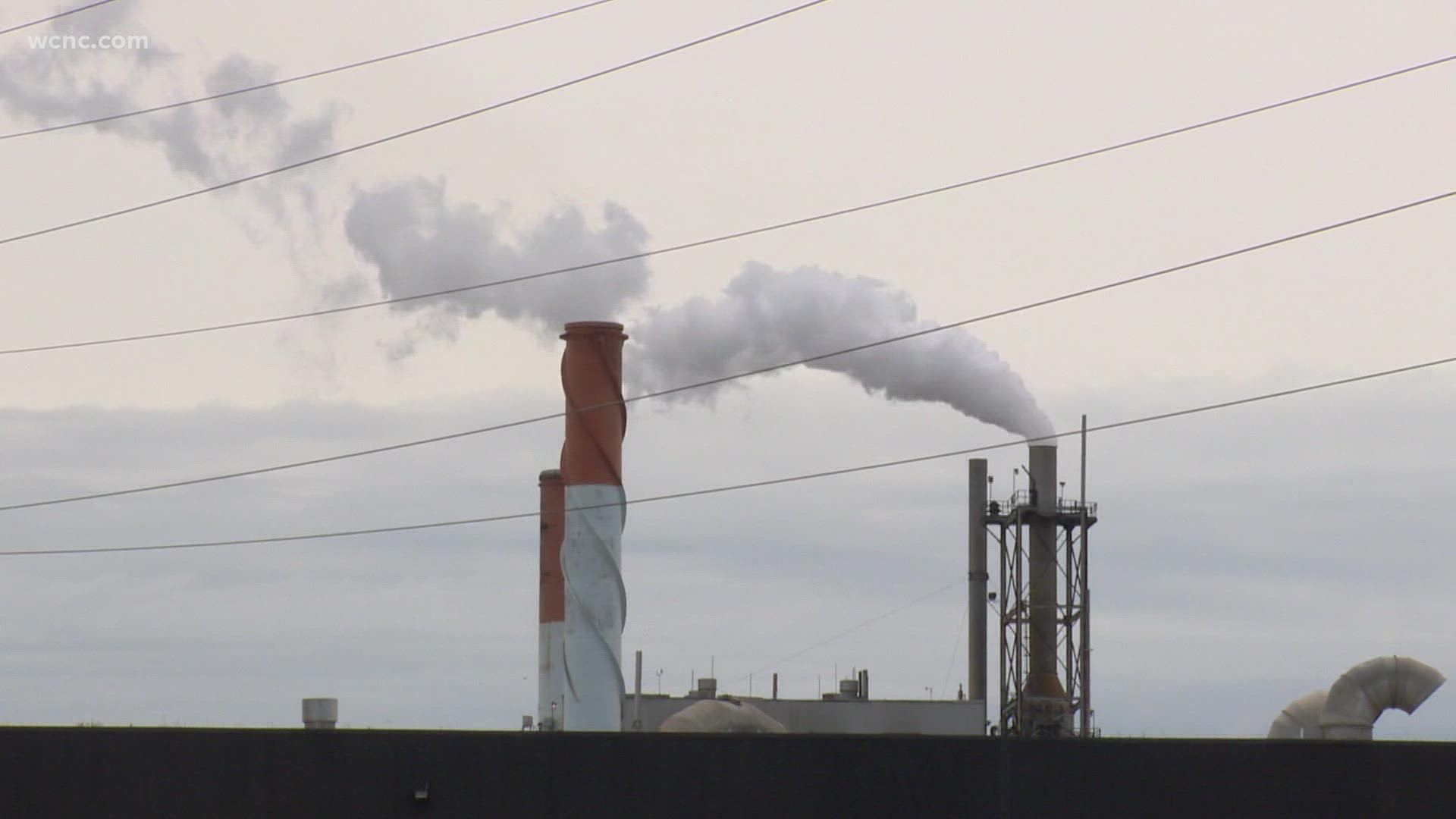CATAWBA, S.C. — A proposed settlement from the U.S. Environmental Protection Agency would require New-Indy Containerboard to minimize hydrogen sulfide missions and pay a $1.1 million civil penalty.
The EPA lodged the proposed consent decree in which New-Indy has "agreed to robust injunctive relief" to prevent hydrogen sulfide concentrations above dangerous levels coming from its Catawba paper mill.
It comes after nearly a year of complaints regarding an odor emanating from the area near the plant. The South Carolina Department of Health and Environmental Control said it started receiving complaints regarding the odor in January 2021.
As part of the proposed consent decree, the company will also pay a civil penalty of $1.1 million.
The developments are months in the making, as the EPA issued an emergency order on May 13 to the paper mill in an effort to "prevent imminent and substantial endangerment to surrounding communities."
The EPA previously issued the Clean Air Act Section 303 Emergency Order to New-Indy, requiring New-Indy to install hydrogen sulfide monitors and prohibiting the company from emitting hydrogen sulfide above health-based levels from its operations.
"Communities near and far from this facility have been experiencing difficult circumstances that have altered their daily lives," EPA Region 4 Administrator Daniel Blackman said in a statement. "This proposed consent decree addresses levels of hydrogen sulfide that have impacted residents along the North Carolina and South Carolina border, and Catawba Indian Nation."
The proposed settlement from the EPA requires the following of New-Indy:
- Operate their steam stripper unit to control hazardous air emissions
- Monito and treat sulfur-containing fuel condensate sent to the wastewater treatment system
- Improve the functioning of the wastewater treatment system
- Install and maintain a carbon filtration system on the post-aeration tank to minimize air emissions
- Install and maintain a functioning secondary containment system around the by-product black liquor storage area to prevent uncontrolled black liquor releases from reaching the wastewater treatment system
- Continue to operate and maintain the hydrogen sulfide fence line monitors and comply with the health-based levels at the fence line
New-Indy is also required to apply for and receive federally enforceable permits to incorporate the terms. New-Indy is not eligible to terminate the consent decree until it both completes all injunctive relief and operates at least three years without exceeding levels at the fence line, according to the EPA.
According to the EPA, this proposed consent decree is subject to a 30-day comment period, beginning once a notice of the proposed consent decree is published in the Federal Register.
In a statement, New-Indy Catawba's mill manager said, "New-Indy worked with the EPA and the U.S. Department of Justice to resolve this matter and will comply fully with the agreement. The mill has cooperated with regulators throughout the process, implemented a long list of improvements, and is grateful for this positive and constructive outcome."
Kerri Bishop, the founder of the Facebook group which first raised concerns about New-Indy, disagreed with Hobson's assessment.
"It's a small step, but $1 million isn't a lot for this company," Bishop said.
Both Bishop and Reilly argued the EPA needed to monitor for other harmful chemicals that, they said, New-Indy is emitting, besides hydrogen sulfide.
"In my mind, it's just more talk, and there's no action yet," Reilly said. "It's been eight months."

